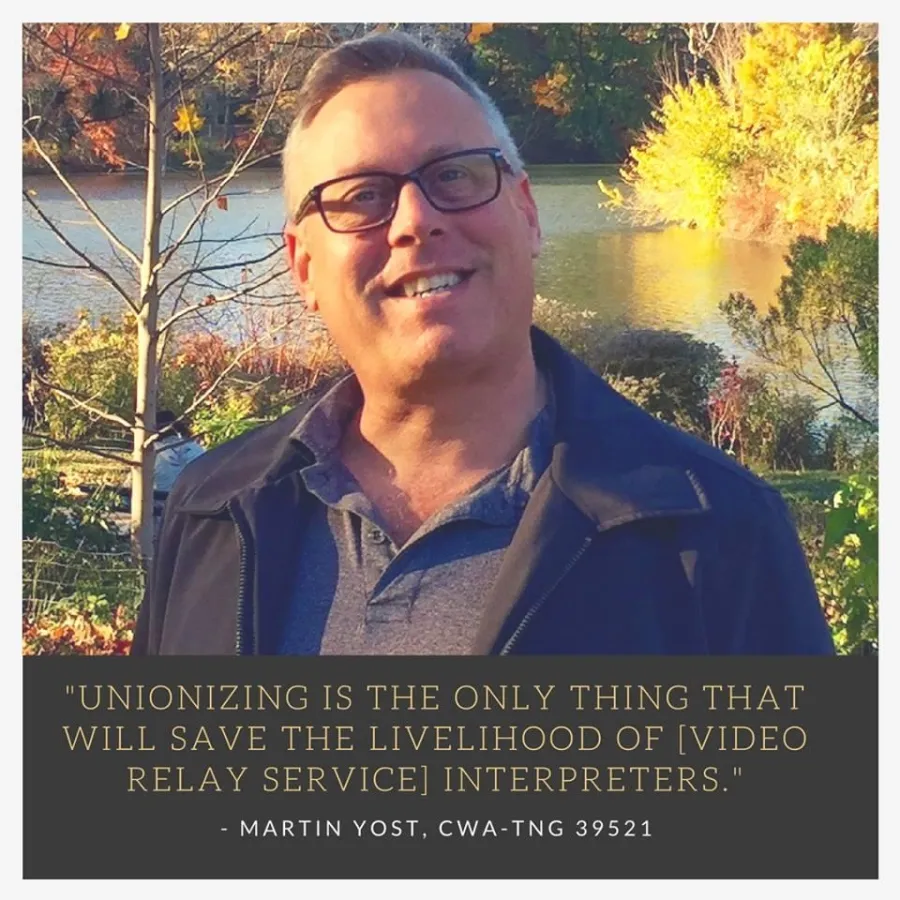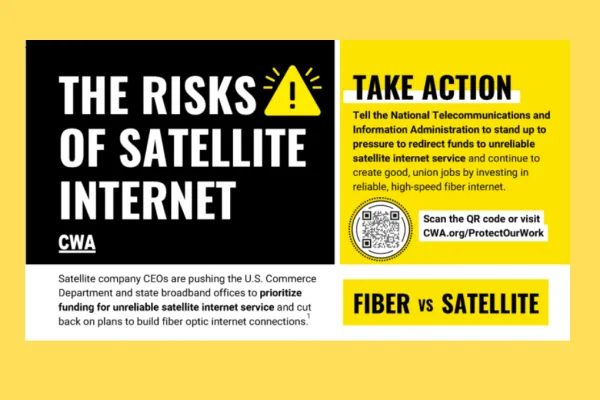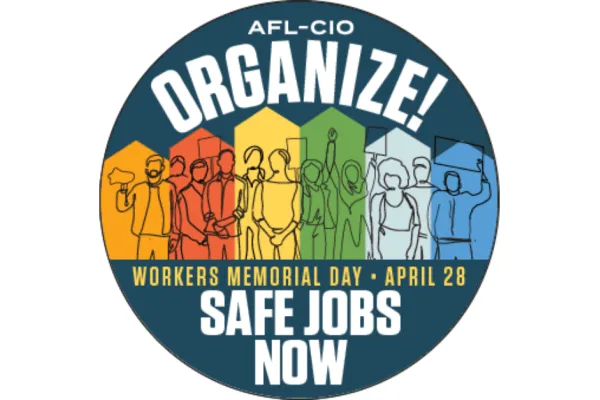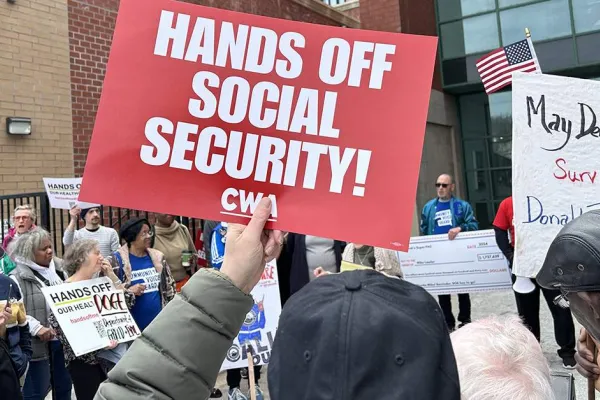Sign Language Interpreters Deserve a Union, Too

CWA Customer Service Committee
Monthly Member Voice Post by Martin Yost
#membervoices #signlanguage #interpreters
My name is Martin Yost. I’ve been a sign language interpreter for 29 years in universities, medical settings, legal settings and anywhere else a deaf person would be. In 2007, I began interpreting Video Relay Service (VRS).
VRS is new to interpreting because it is based on recently invented live-streaming video technology. The work happens in a call center environment where we interpret phone calls between deaf and hearing people remotely on video. VRS is some of the most difficult interpreting; it allows for no preparation like community (live in-person) interpreting does. We have no idea what we are going to get hit with on each new call, so it’s stressful. While a busy community interpreter may have ten, fifteen, or twenty assignments a week, a VRS interpreter can fly through that many interpreting assignments in an hour or two on the video phone. In all my years interpreting, it never occurred to me that one day I would unionize – until 2012.
Since VRS hit, the landscape of the interpreting profession has changed. Deaf people have more communication access and interpreters have a new employment opportunity. There was surely a honeymoon period. At first, everyone was excited! VRS was so popular, the demand snowballed. Talented interpreters were scooped into the VRS field causing a short supply of interpreters. The skill had become commoditized and the industry became corporatized. Eventually, many VRS providers merged, leaving just a few VRS companies that are now owned mostly by wealthy hedge fund investment groups.
Due to a many of management’s unilateral changes in VRS, unionization became a hot topic. In 2012, many interpreters reached their limits with the companies’ robotic management and formed a union so that we could help control over increasing performance metrics and have a voice that heartless corporate leaders must listen to.
Unionizing is the only thing that will save the livelihood of VRS interpreters. For the first time in VRS, interpreters are provided shared governance at work. Our first contract just expired and we’re now bargaining our second labor agreement. We have a lot more work to do, but without a union, we would be at the mercy of management that protects company profit and disregards sustainability of the interpreting profession. With a union, we have a voice.
In Solidarity,
Martin Yost, CWA-TNG 39521
https://www.facebook.com/CSActionNetwork
We Need Reliable Internet Service and Good Jobs - Sign the Petition
2025 Workers Memorial Day: Fight For Our Lives, Safe Jobs Now
Tax Week Actions Sweep the Nation as CWA Calls for Tax Fairness



